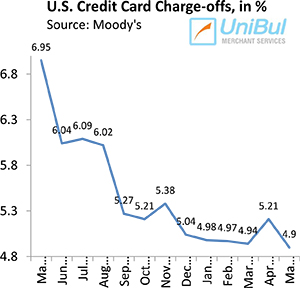Independent Sales Organization (ISO) vs. Sales Agent

Independent Sales Organization (ISO), Member Service Provider (MSP) and sales agent are terms which in the payment card industry are often used interchangeably, yet each of them designates an entity which has its unique place in the payments world. Usually, an organization which is an ISO is also an MSP, but these are not the same thing and neither designation can normally cohabit with that of a sales agent. In this article I will explain what each of these terms means, what their relations are to one another and to the Credit Card Associations of Visa and MasterCard, as well as to their member banks, how organizations become ISOs, MSPs and sales agents and what functions they perform as such.
Once we have mastered the menagerie of payments designations, I will look into an issue which has a wide range of consequences for, and potentially a huge impact on the future prospects of, new businesses entering the industry. Namely, I will analyze the advantages of operating as an ISO / MSP as opposed to a sales agent and vice versa. Hopefully, that would be of use to those of you who are struggling to make the right choice and would help you avoid making some of the mistakes I made when I started years ago.
Getting the Terms Straight
Let’s begin by getting our definitions straight. Here they are:
Independent Sales Organization. ISO is an organization or individual that provides payments-related services, either directly or indirectly, to a member of Visa’s payment network (either a card issuer or transaction acquirer). Typically, these services include merchant solicitation and training activities, sales, customer service, sales or service of Interlink-capable POS terminals, etc.
Member Service Provider. MSP is MasterCard’s equivalent to Visa’s ISOs and is officially defined as “a non-member that is registered by the Corporation [MasterCard] as an MSP to provide Program Services to a member, or any member that is required to register, in the Corporation’s sole discretion, and has been registered as an MSP to provide Third Party Processor Program Services to another member.” The “program services” in question are, for all practical purposes, the same as what ISO’s do for Visa member banks. Now, to make matters slightly more complicated than they need to be, MasterCard also uses the term “Independent Sales Organization”, which it defines as “an MSP that provides Program Services, other than transaction and cardholder processing, to a member… Such Program Services include, but are not limited to, merchant solicitation, cardholder solicitation, and customer service”.
Sales agent. In the payments industry, a sales agent (or a third-party agent) is an organization or individual, which contracts with an ISO and / or MSP to sell services provided by the ISO / MSP in question. The crucial difference between a sales agent and an ISO / MSP is that the former is not required to be registered directly with the Associations of Visa and MasterCard and doesn’t have to pay the associated fees (we’ll get to those in a bit). As a consequence, a sales agent cannot sell payments-related services in its own name, as ISOs / MSPs do, but can only do so in the name of the ISO / MSP it represents.
How ISOs / MSPs and Agents Relate to Member Banks
Even though it should be clear by now, it is important to stress that ISOs and MSPs are not banks and the actual settling of merchant transactions and the handling of their money is done by the acquiring bank that has contracted with the ISO / MSP. The first thing you need to understand is that each ISO / MSP must be “sponsored” by such an acquiring bank, member of Visa and / or MasterCard, before it can be registered with either Association. Typically, acquiring banks are members of both Associations and the registration processes for both occur simultaneously. Here we should note that in the real world, acquiring banks sponsor directly only very big ISOs / MSPs and all others are left with the sole option of becoming an ISO / MSP of a larger ISO / MSP.
An ISO / MSP can be sponsored by multiple member banks. Why would they want to complicate matters and pay registration fees multiple times? Well, it mostly has to do with the fact that each acquirer has its own underwriting policies, which means that some of them are welcoming to the types of high-risk merchants, which others wouldn’t touch. So, by registering with two acquirers, an ISO / MSP benefits from the more favorable terms it has received from one of them, while it has a back-up option for the high-risk merchants the low-risk acquirer wouldn’t take.
It should also be pointed out that acquiring banks are perfectly capable of performing the job of their ISOs / MSPs. Yet, they rarely do so and prefer to focus on the process of acquiring payment transactions instead. I could go over their reasons, but I think that these are fairly obvious and, in any case, they have no bearing on the subject at hand.
You can easily identify the acquirer(s) of each ISO / MSP by looking at their website. ISOs / MSPs are required to display the name of their “sponsor bank” on their website and marketing materials. Typically, these disclosures are located in the footer of their website. Here is, for example, how our own disclosure notice reads on our website (we don’t need it here on this blog):
UniBul Merchant Services LLC is a registered ISO / MSP of Wells Fargo Bank, N.A., Walnut Creek, CA
Sales agents also need to be registered with the Associations, however the registration process is a much more straightforward one and is entirely handled by their ISO / MSP. Furthermore, the registration fees are purely nominal.
How ISOs / MSPs Register with Visa and MasterCard
The ISO / MSP registration process is quite rigorous. It begins with the applicant finding a member bank to become its “sponsor”. Prospective ISOs / MSPs then have to prove to the sponsor bank that they are able to perform their duties.
The Associations require their member banks to look during the application review into each applicant’s basic background, financial and operational reviews. Additionally, any agent that processes or transmits cardholder data must be PCI DSS compliant or at the very least in the process of validating compliance. Furthermore, sponsors can expand the review to include the applicant’s business type, services performed, relative program risk, cardholder data held or processed and whatever else they may deem necessary.
An applicant should expect the following documents to be requested during the application process:
- Business financial statements or personal tax returns for all principals for the previous two years.
- A personal financial statement for each principal.
- Executed Articles of Incorporation or Partnership documents.
- A detailed business plan.
- A copy of sales and marketing materials.
- A complete list of the ISO employees or agents.
All principals will have their personal credit histories checked and evaluated. Finally, the applicant is assessed a registration fee of $5,000 by each Association. Every year thereafter, ISOs / MSPs have their registrations reviewed and additional fees of $5,000 per Association are due upon approval. In contrast, an agent’s registration fee can be as little as $50 or so — unlike the ISO / MSP registration fees, the agent one is not fixed.
ISO / MSP vs. Sales Agent
So should you go for a full-fledged ISO / MSP status or would that of a sales agent suffice? Well, that would depend mostly on your ability to sign up a sufficiently high number of merchants to offset the registration fees and do so quickly. Other things being equal, if you could do that, an ISO / MSP would probably be the better option for you; otherwise you’d be better off being an agent. But the real world is more complicated than we might wish and there are other things to be considered when making the decision and they need to be carefully examined.
Let’s start by stating the most obvious reason why you would want to become an ISO / MSP and pay $10,000 a year for the privilege, rather than simply operate as an agent and pay close to nothing for it: ISOs / MSPs get much better base rates to work with than agents can ever hope for. Furthermore, in a typical arrangement, an ISO / MSP gets to keep 100 percent of the mark-up above those base rates, whereas an agent would typically keep only half of it (if you see a more favorable proposed split, you should really raise your guard — something is probably wrong). So, as an agent, not only are you handicapped by higher base rates, which make you less competitive, but you also get a lower share of the revenue.
So far, so straightforward. But there is more to becoming an ISO / MSP than meets the eye and there is nothing bigger than the “monthly minimum processing fee” provision, which is a standard feature in the contracts of the biggest U.S. sponsoring organizations. What is it? Well, here is the applicable clause, tucked into the very end of the pricing schedule of a real-world ISO / MSP agreement — read it very carefully:
A monthly minimum processing fee of $3,500 shall be assessed after the first six months from the effective date of the Agreement and shall increase to $7,000 six months thereafter, initiated if the total authorization, capture and settlement transaction fees (“Minimum Fees”) do not equal or exceed this minimum amount. ISO shall pay an amount equal to the applicable monthly minimum processing fee less the actual Minimum Fees collected to the extent it is unable to meet the applicable month minimum. (My italics).
Now, in order to appreciate what that means, you need to know that the total amount an ISO would be paying in authorization, capture and settlement transaction fees would typically be 5?ó – 7?ó per transaction. That total would be higher for voice-authorized transactions, but these are few and far between, as are a couple of other qualifying fees. Let’s be generous and assume that the odd fees raise the average by two cents to 7?ó – 9?ó per transaction. So, in order to cover the monthly minimum of $7,000, you would need to have a portfolio of merchants, which generates at least 77,800 – 100,000 transactions every month. That’s a lot of transactions for someone who’s just starting out!
Oh, and the above example is not the worst provision you are likely to encounter, not by a long shot. Here is another real-world example:
A monthly minimum processing fee of $4,500 (the “Monthly Minimum Fee”) shall be assessed to ISO only in the event that ISO’s total authorization, capture and settlement processing fees in any given month do not equal or exceed $4,500. Imposition of the Monthly Minimum Fee, if applicable, shall commence after the first six months after the Effective Date of the Agreement, and shall increase by an additional $4,500 on the anniversary date of the Agreement for each year of the Agreement.
That’s right, your monthly minimum will be growing in arithmetic progression for the life of the contract, which in this case is six years. So unless you have a bunch of busy gas stations just aching to rip off their existing merchant services contracts just so that they can sign up with you, don’t ever sign an ISO agreement with such a clause! Otherwise, you will live to regret it. In case you are wondering, yes, the minimum fee requirement is there to ensure that the sponsor is making good money from its ISO, in addition to its merchants.
Now, you have an alternative in the smaller sponsoring organizations, which require no minimums of this kind, if you can find them. However, their pricing terms would usually not be as advantageous and their service as reliable as those of their larger rivals, which is what you need to have if you are to be competitive. Furthermore, their contracts may feature a different type of a minimum requirement and one with an even greater destructive potential — a minimum number of new merchants you have to bring in each month. And if you fail to meet that requirement in any given month, you stand to lose your entire residual income (industry speak for “commissions”). Here is another example to give you an idea of what I mean:
Company acknowledges that ISO owns and has the rights to its compensation/income, so long as five (5) new merchant accounts are submitted to Company on a monthly basis and based upon allocated residual income earned under this Agreement for approved Merchant Agreements solicited by ISO. However, BANKS and/or Company own the Merchant Agreements.
So you may have built a portfolio of merchants, which is earning you $50,000 in monthly residual income and lose it overnight. Now that would hurt.
The Takeaway
So, with all that in mind, here is what I would do if I were starting out all over again today. I would begin as an agent of several good-size ISOs (the largest ones would not consider you) and do my best to avoid traps like the ones mentioned above. I would send merchants to each one of them for some period, say a year, until I’ve identified the one I liked the best. From that point on, I would keep working solely with that ISO. Then, whenever my volume had grown sufficiently to justify paying the registration fees, I would start talking to my ISO about their own sponsorship program and would reach out to the big guys to learn about their offerings. I would negotiate the hell out of each sponsor’s terms, before I made my decision. And before I signed anything, I would ask a lawyer with expertise in the industry to carefully review the contract and explain the meaning of everything in which I was not 100 percent certain.
And, by the way, I would follow this plan of action even if I had prior experience working within an ISO organization. Otherwise, you’d be doomed to suffer a long string of unpleasant and costly surprises and wonder how it was possible to have never seen those things before and why no one ever told you about them.
Image credit: MasterCard.



Where does it say on Visa or MasterCard rules that an ISO must display the name of their sponsor bank on their website.
Thanks,
Aloha,
Thank you for your insight!
Brian
Happy to know you’d start off as an agent if you were to do it again – I am doing that now